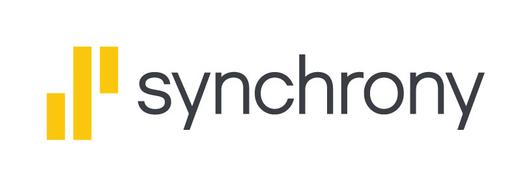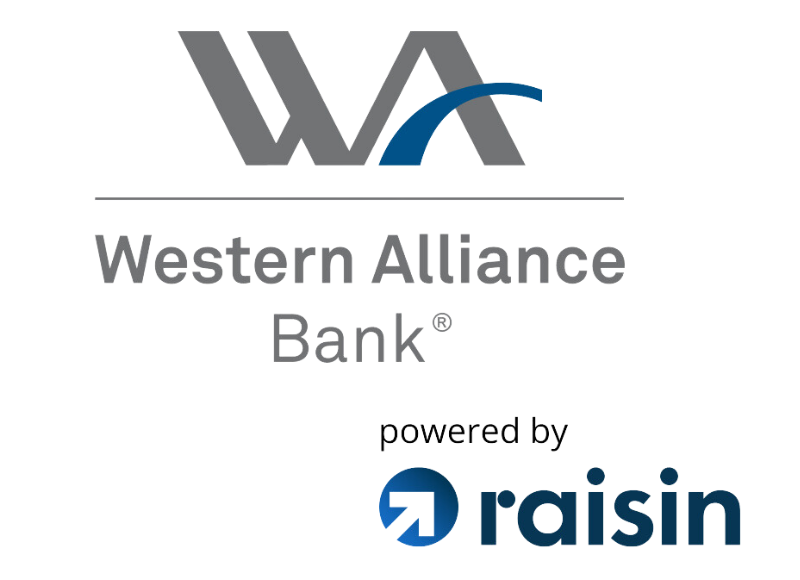Looking for a safe, high-yield way to grow your cash? Certificates of deposit (CDs) are a secure way to grow your cash at a fixed rate for a set period. They're easy, safe, and offer some of the highest rates available.
The Fed just cut rates, and banks could follow. Lock in one of today’s top CD yields before they start to slip.
We’ve rounded up our favorite CD accounts based on APY, bank reliability, and fees. Find the right one, lock in your rate, and start earning today.
- Our team of experts assessed 100+ banking institutions
- We evaluate all banking institutions across the same 4 key criteria: annual percentage yield (APY), brand reputation, fees and minimum requirements, and additional perks
- Our bank ratings are never influenced by our advertising partners
- We strictly feature products that offer federal insurance and high customer satisfaction, keeping our recommendations unbiased
Best CD rates
On Synchrony Bank's Secure Website.
On Raisin's Secure Website.
On Barclays' Secure Website.
Unlike other banking products we evaluate, certificates of deposit (CDs) do not receive a star rating from us. This approach is due to the frequent updates in interest rates and terms associated with CDs. Instead, we highlight CDs on our best-of list pages based on their annual percentage yield (APY) and the fees associated with early withdrawals. Our top CD selections typically offer competitive APYs without complex qualification tiers, low early withdrawal penalties, reliable strong brand reliability, and user-friendly features.
Motley Fool Money focuses exclusively on standard CDs and does not review IRA CDs, bump-up CDs, callable CDs, or other specialized CD accounts.
Our aim is to maintain a balanced list featuring top-scoring products from reputable brands offering competitive APYs and standout features. Learn more about how Motley Fool Money rates bank accounts.
Unlike other banking products we evaluate, certificates of deposit (CDs) do not receive a star rating from us. This approach is due to the frequent updates in interest rates and terms associated with CDs. Instead, we highlight CDs on our best-of list pages based on their annual percentage yield (APY) and the fees associated with early withdrawals. Our top CD selections typically offer competitive APYs without complex qualification tiers, low early withdrawal penalties, reliable strong brand reliability, and user-friendly features.
Motley Fool Money focuses exclusively on standard CDs and does not review IRA CDs, bump-up CDs, callable CDs, or other specialized CD accounts.
Our aim is to maintain a balanced list featuring top-scoring products from reputable brands offering competitive APYs and standout features. Learn more about how Motley Fool Money rates bank accounts.

The Federal Reserve reduced the target for the fed funds rate in September of 2025, and more cuts are expected.
One way to lock in current rates is through a certificate of deposit (CD). They're particularly attractive for money you know you'll need at a certain time in the near future, such as a down payment for a home or retirement income a few months or years from now.
Since a CD won't lose value, the money is protected from the ups and downs of the bond and stock markets. If the characteristics of a CD sound appropriate for your situation, don't wait; the Federal Reserve is expected to continue cutting rates.
-Robert Brokamp, Certified Financial Planner® and Senior Advisor at The Motley Fool
Best CD accounts by category
Best for flexibility: Synchrony Online CD
APY = Annual Percentage Yield

Perhaps one of the lesser-known names on the list, Synchrony (Member FDIC) is a full-line bank with a 90-year history. Synchrony's CDs are notable for competitive rates at most term lengths, plus low or no minimum deposits.
On Synchrony Bank's Secure Website.
| 9 Mo. APY | 1 Yr. APY | 1.5 Yr. APY | 2 Yr. APY | 3 Yr. APY | 4 Yr. APY | 5 Yr. APY |
|---|---|---|---|---|---|---|
| 4.10% | 3.90% | 3.70% | 3.50% | 3.60% | 3.50% | 3.75% |
Why I like it for flexibility: Synchrony Online CD offers one of the most versatile CD portfolios around — no minimum deposit, plenty of term options, and extra features like no-penalty and bump-up CDs. Whether you're looking to lock in a high rate or keep your options open, Synchrony Online CD makes it easy.
Best for short-term CDs: Western Alliance Bank CD
APY = Annual Percentage Yield

Western Alliance Bank offers some of the highest APYs we've seen across short-term CDs through the Raisin platform. Its CDs have low $1 minimums, and relatively low withdrawal penalties without any additional fees. But you will need to look elsewhere for terms longer than one year.
On Raisin's Secure Website.
| 3 Mo. APY | 4 Mo. APY | 6 Mo. APY | 9 Mo. APY | 1 Yr. APY |
|---|---|---|---|---|
| 3.80% | 3.50% | 3.50% | 3.40% | 3.30% |
Why I like it for short-term CDs: Western Alliance Bank CD offers standout rates on short-term CDs — perfect if you want a solid return without tying up your money for too long. It’s a great way to make your cash work a little harder while keeping your long-term options open.
Best for no minimum deposits: Barclays Online CD
APY = Annual Percentage Yield

Barclays offers competitive rates on most common CD terms with no minimum balance requirements. There are no monthly fees, so you likely won't lose money unless you try to withdraw your funds early. Those interested in building longer-term CD ladders will find plenty to like here.
On Barclays' Secure Website.
| 6 Mo. APY | 9 Mo. APY | 1 Yr. APY | 1.5 Yr. APY | 2 Yr. APY | 3 Yr. APY | 4 Yr. APY | 5 Yr. APY |
|---|---|---|---|---|---|---|---|
| 3.90% | 3.75% | 3.60% | 3.00% | 3.00% | 3.00% | 3.00% | 3.00% |
Why I like it for no minimum deposit: Not a lot of cash to start with? No worries. Barclays Online CDs let you earn a solid APY no matter how much you deposit. While most banks want you to put some serious skin in the game, Barclays makes it easy to get started -- even if you're only working with a couple hundred bucks.
How to choose the best CD for you
Not all CDs are created equal, and the best one for you depends on a few key factors. Here's what to keep in mind before you lock in your cash:
- APY (annual percentage yield): The golden number. The higher the APY, the more your money grows -- simple as that. But don't just chase the highest rate. Make sure the term length, deposit requirements, and the bank itself align with your needs.
- Term length: How long can you live without touching this money? CD terms range from a few months to several years, and once your cash is in, it's staying put. If you think you might need access sooner, opt for a shorter term or look into a high-yield savings account instead.
- Minimum deposit requirements: Some CDs let you start with just a few bucks, while others require a hefty upfront investment. Generally, higher deposits unlock better rates, but don't stretch yourself too thin. Find a sweet spot between a solid APY and what you can comfortably invest.
- Early withdrawal penalties: Life happens. If you suddenly need your money before your CD matures, you'll likely face a penalty -- sometimes a few months' worth of interest, sometimes more. If flexibility is a priority, a no-penalty CD might be a better fit.
- Bank reputation and FDIC insurance: All the banks on our list are FDIC insured, which means up to $250,000 of your money is protected in case of a bank failure. But remember, some of the highest CD rates come from online-only banks. Do a little homework to make sure you're comfortable with their reputation and customer service before committing.
Bottom line? The best CD for you isn't just about the highest rate -- it's about balancing returns, accessibility, and security. Choose wisely, and let your money do the heavy lifting.
Keep reading: How Does a CD Work? A Beginner's Guide
Are CDs better than high-yield savings accounts?
Deciding between a CD and a high-yield savings account depends on your financial goals. Both are solid options, but each offers unique benefits.
What's the difference?
A high-yield savings account offers flexibility -- you can deposit and withdraw funds at any time, with a higher interest rate than a regular savings account. A CD locks your money away for a set period, usually offering a better rate in return. The downside? You can't access your funds without penalties until the term ends.
Which one's right for you?
A high-yield savings account is best for flexibility, allowing easy access to your funds without penalties.
A CD is ideal if you're okay with locking your money up for a fixed term to earn a higher interest rate.
Both have their perks. If you want higher returns and can commit your cash for a while, a CD is the way to go. If you need flexibility and want to keep your options open, a high-yield savings account is a solid choice. It all comes down to how much access you need to your money.
Decided you'd rather have a high-yield savings account? See our favorite HYSAs here.
How to open a CD account in five steps
Opening a CD is simple and can be done in just a few steps. Here's how.
1. Compare CD rates and terms
First things first, shop around to find the best APY. Look for a rate that matches your financial goals, whether you're in it for a short-term (6-12 months) or long-term (3-5 years) commitment. The longer the term, the higher the rate, generally.
Make sure to check the minimum deposit requirements and any early withdrawal penalties -- you don't want to get stuck if life throws you a curveball.
2. Choose a bank or credit union
Next, you'll need to decide where to open your CD. Online banks tend to offer better rates because they don't have the overhead costs of physical branches. If you're more comfortable with in-person service, a traditional bank or credit union might be your jam. Either way, make sure the bank you choose is reliable and gives you the customer support you need.
3. Apply online or in-person
When you've picked the bank, it's time to apply. If you're going the online route, the process is quick and easy -- no need to leave your couch. But if you prefer a little face-to-face interaction, visit a branch and get help with your application in person. You'll need to provide some personal details, like your ID and contact info, to get the ball rolling.
4. Fund your CD
Once you're approved, it's time to fund your CD. You'll need to deposit the required amount -- either by transferring funds from an existing account or writing a check. Make sure you meet the minimum deposit to kick off your CD.
5. Monitor maturity dates and renewal options
After your CD is up and running, keep track of the maturity date. When your term ends, you'll need to decide whether you want to withdraw your cash, roll it over into a new CD, or transfer it to another account. Some banks will auto-renew your CD, so it's a good idea to check in before that happens to make sure you're still getting the best deal.
-
Article sources
- https://savings.breadfinancial.com/products/certificates-of-deposit
- https://www.alliantcreditunion.org/help/is-there-a-penalty-if-i-close-my-alliant-certificate-early
- https://www.cnbc.com/select/when-will-interest-rates-drop/
- https://www.bankrate.com/banking/cds/top-cd-rates-today-april-25-2024/
- https://www.cnn.com/2024/06/25/economy/fed-officials-talking-down-rate-cut/index.html
Banks we monitor
-
Here are the 100+ financial institutions we've evaluated in our research:
Alliant, Ally, All America Bank, American First Credit Union, American Express National Bank (Member FDIC), Arvest Bank, Aspiration, Axos Bank, B2 Bank, Bank of America, Bank5 Connect, Bank7, Barclays, Bask Bank, Betterment, Bluevine, BMO Bank, Bread Financial, Capital One, Carver Federal Savings Bank, Charles Schwab Bank, Chase, Chime®, CIT, Citibank, Citizens, Citizens Savings Bank, Columbia Bank, Connexus Credit Union, Consumers Credit Union, Copper, Cross River Bank, Customers Bank, Discover® Bank, E*TRADEEdward Jones, EverBank, Fidelity, Fifth Third Bank, First Foundation Bank, First Internet Bank of Indiana, First National Bank, First Tech Federal Credit Union, Flushing Bank, Freedom Bank, Generations Bank, GN Bank, Golden 1 Credit Union, Greenlight, Harborstone Credit Union, HSBC, Huntington Bank, Ivella, Jenius Bank, Kabbage by American Express, KeyBank, Laurel Road, LendingClub, Liberty Bank, Liberty Federal Credit Union, Marcus by Goldman Sachs, Mercury, Municipal Credit Union, Mutual of Omaha, My Banking Direct, NASA Federal Credit Union, Nationwide Bank, Navy Federal Credit Union, NBKC Bank, New York Community Bank, NexBank, Northpointe Bank, Novo, OceanFirst Bank, Old National Bank, ONE Finance, OneUnited Bank, Oxygen, Pacific Western Bank, PNC Bank, Ponce Bank, Popular Direct, Presidential Bank, Prime Alliance Bank, Quontic, Radius, Raisin, Redneck Bank, Regions Bank, Relay, Republic Bank of Chicago, Revolut, Salem Five Bank, Sallie Mae, Santander Bank, SchoolsFirst Federal Credit Union, Simple, SoFi®, Synchrony Bank, TAB Bank, TD Bank, Third Federal, Truist Bank, U.S. Bank, UFB, Upgrade, USAA, Valley Bank, Vanguard, Varo Bank, Vio Bank, Wealthfront, Wells Fargo, Western Alliance Bank, and Zeta.
FAQs
-
While it's hard to predict exact movements, CD rates generally follow the trends of the Federal Reserve. If rates continue to fall in 2025, you'll likely see CDs offer lower rates as well.
-
You can withdraw money early from a CD, but most banks will charge an early withdrawal penalty -- usually a few months' worth of interest.
-
When your CD matures, you can either withdraw the funds, roll them over into a new CD, or transfer them to another account. Some banks may auto-renew your CD at the current rate.
Annual Percentage Yield (APY) is subject to change at any time without notice. Offer applies to personal non-IRA accounts only. Fees may reduce earnings. For CD accounts, a penalty may be imposed for early withdrawals. After maturity, if your CD rolls over, you will earn the offered rate of interest in effect at that time. Visit synchrony.com/banking for current rates, terms and account requirements. Member FDIC.


